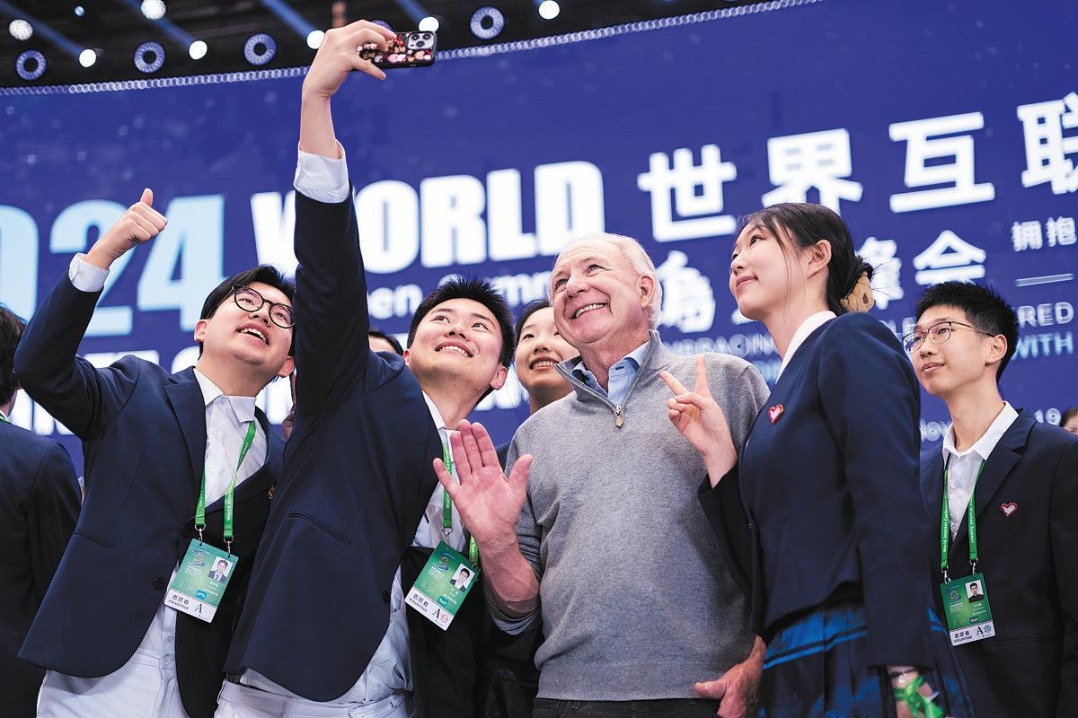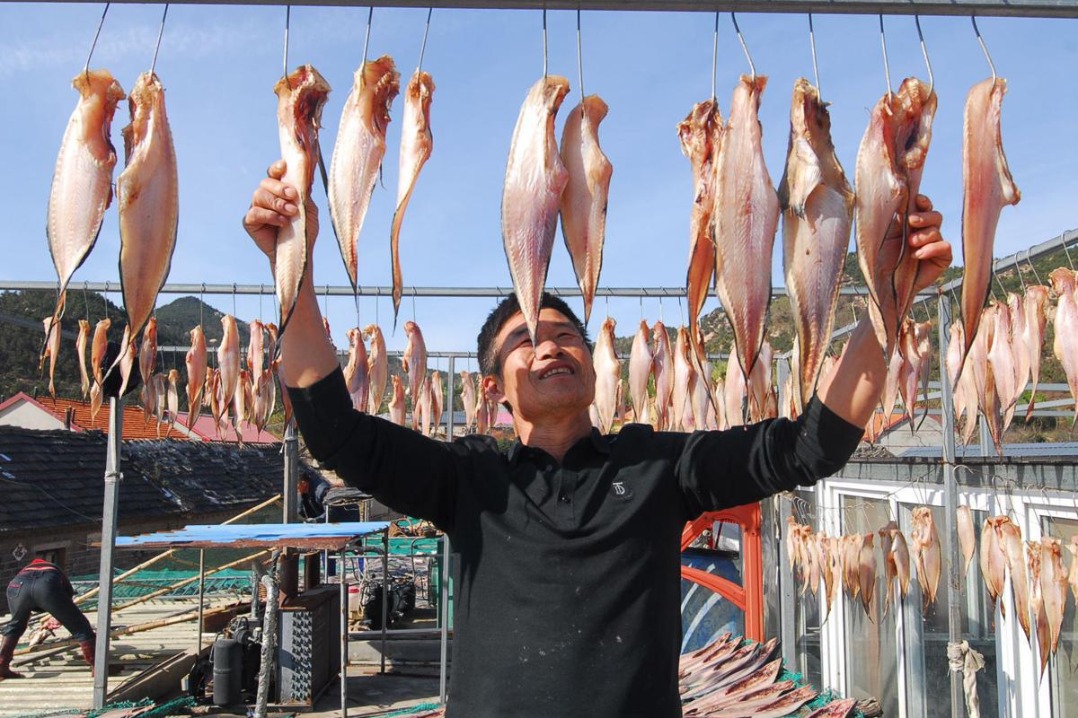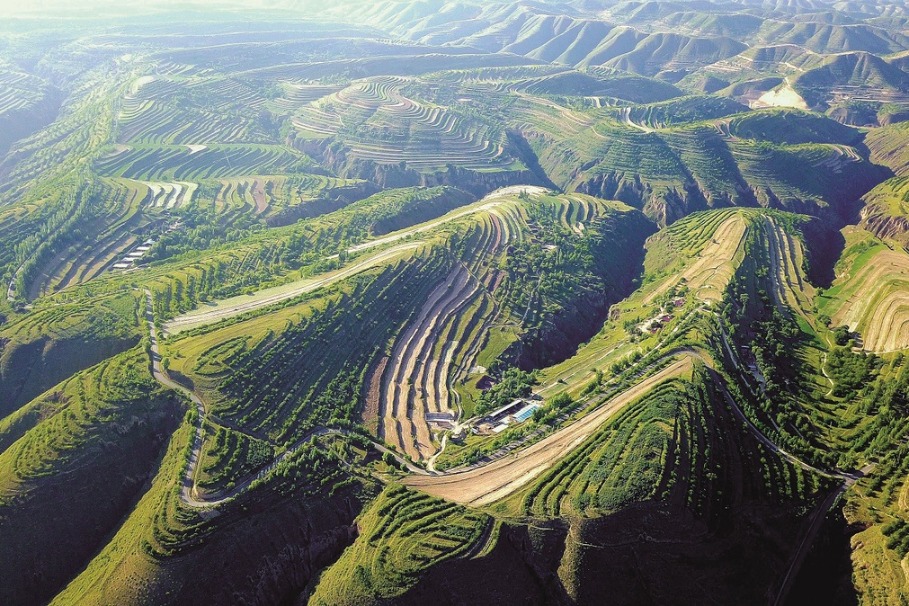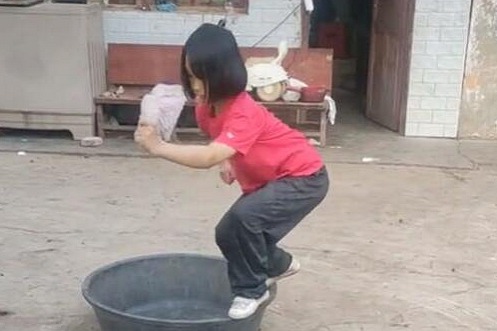Co-branded products savor the taste of success
Pooling of ideas achieves mutually beneficial outcomes


Every time a new co-branded drink is launched, Xu Jian, the 23-year-old branch manager of a chain store selling the popular Chinese drink Heytea in Beijing's Sanlitun area, and his team, prepare for a challenging day.
The store boasts an abundance of materials for such drinks, including cups, cup sleeves and paper bags, and the 30-plus employees stand ready to help customers.
The store opens at 10 am, but Xu and his team start preparing for work at 8 am. By 9 am, there is already a long line waiting outside.
As the doors swing open, customers and online orders flood in. However, about an hour later, Xu takes the tough decision to close the delivery channel, as the huge number of orders for the latest co-branded drinks are overwhelming, and ensuring prompt delivery becomes a challenge.
Xu said it also takes about 40 to 50 minutes for in-store customers to receive their drinks.
"The majority of orders are for new co-branded products. Many customers also come to the store for related giveaways, repeatedly buying drinks to obtain items such as badges," he said.
On Jan 8, Heytea announced a new co-branded drinks collaboration with Hongshan Forest Zoo in Nanjing, Jiangsu province, featuring three animals from the zoo — Dudu, a white-faced saki monkey; Almond, a capybara (a type of rodent); and Jasmine, a koala.
In addition to special drinks launched with the zoo, Heytea introduced badges and fluffy bags. By lunchtime, the bags had sold out on the online platforms of many stores in Beijing.
On the same day, Luckin Coffee partnered with the popular domestic animation series Xiaolan Friends to introduce co-branded stickers.
Customers received a free sticker on buying any two drinks, and each sticker came with a scratch card for the chance to win a free cup of coffee. Luckin Coffee also added co-branded emojis.
Over the past year, co-branded beverages have become increasingly popular among younger consumers in China, creating a new market for drink brands. This has led to a noticeable increase in the frequency of co-branded product launches, coupled with the diverse exploration of collaborative strategies.
Intense competition in the beverage industry triggered the fervor for joint marketing. In their quest for market share, brands have transitioned from products and supply chains to engage in an all-out commercial battle.
In October, the Hongcan Industry Research Institute, which focuses on the catering sector, released its Beverage Brand Co-Marketing Observation Report for 2023. The report predicted that the beverage market would reach 261.3 billion yuan ($36.32 billion) last year, a 22.8 percent year-on-year rise.
In the first three quarters of last year alone, 18 popular brands producing freshly made beverages collaborated 236 times. During this period, brands such as ChaPanda, Naixue, and Mixue Ice Cream & Tea doubled their joint marketing efforts compared with the whole of 2022.
Naixue, in particular, launched 33 collaborations, staging three to five joint marketing campaigns every month. Other brands, including ChaPanda, Heytea, and Luckin Coffee are also jumping on the co-branding bandwagon.
In September, as singer Jay Chou's album Fantasy marked its 22nd anniversary, Naixue teamed up with the Boohee app to launch Fantasy Milk Tea, riding on Chou's influence. This collaboration was hugely successful, with more than 1.46 million cups of the beverage sold on the first day, netting sales of over 300 million yuan.
- Mega project in China diverts 76.5 billion cubic meters of water to north
- Chinese scientists find a way to effectively remove plastic contaminants in water
- National Traditional Games of Ethnic Minorities concludes
- Chinese taikonauts engage with Bulgarian youth in space dialogue
- China sets up its first international ship registry in Hainan
- Zhenjiang teaches students with disabilities to hoe their own roe




































